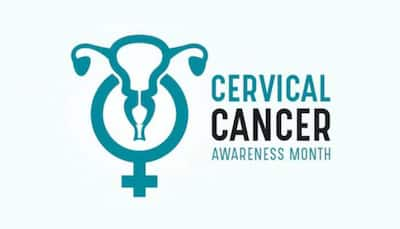Cervical cancer is still a major health problem for women in India, causing more than 77,000 deaths every year. This type of cancer starts in the cervix, which is the lower part of the uterus that connects to the vagina. While it can be very dangerous, cervical cancer can often be prevented and treated, especially if it is detected early.
In this article, let’s discuss the symptoms, risk factors, and prevention strategies to help you stay informed and protect your health as shared by Dr. Preeti Shukla, Senior Consultant – Obstetrics and Gynaecology. MBBS, DNB (Obs & Gynae), FMAS, DMAS at Paras Health, Kanpur.
Cervical cancer happens when unusual cells in the cervix start growing out of control. Most of the time, it is connected to specific types of the human papillomavirus (HPV), which is a common infection spread through sexual contact. While many HPV infections go away by themselves, some dangerous types can cause changes in cells that may turn into cancer if not treated.
Early symptoms of cervical cancer are often subtle, making regular health check-ups vital. Here’s what to watch for:
• Unusual bleeding: Spotting between periods, after sexual activity, or after menopause.
• Abnormal vaginal discharge: This may look watery, bloody, or have a foul smell.
• Pelvic pain: Persistent discomfort or pain in the pelvic area, often unrelated to menstrual cycles.
• Frequent urination: Needing to urinate more often than usual.
• Painful urination: Experiencing pain or discomfort while urinating.
These symptoms can also be caused by other conditions, so it’s crucial to consult a doctor for an accurate diagnosis if you notice any of these changes.
Certain factors increase the likelihood of developing cervical cancer:
The best chance to treat cervical cancer successfully is its early detection. Screening tests may include Pap smear or HPV testing that can recognize abnormal cervical cells before they have the chance to become cancer.
Early detection not only improves the outcome of treatment but also reduces the chances of cancer spreading to other parts of the body.
If cervical cancer is diagnosed in its early stages, treatment options include:
The choice of treatment depends on factors such as the tumor’s size and location, as well as the patient’s overall health and future reproductive goals.
Cervical cancer is one of the most preventable cancers, and taking proactive steps can significantly reduce your risk:
By following these preventive measures, you can significantly reduce your risk of cervical cancer and improve your overall health.
Cervical cancer is a dangerous but preventable illness. Being aware, getting regular check-ups, and living a healthy lifestyle can save lives. If you notice any signs or it’s time for a check-up, talk to your doctor.
By acting early and focusing on prevention, we can build a future where no woman has to worry about cervical cancer. Take control of your health now, and inspire the women around you to do the same.
Stay informed on all the , real-time updates, and follow all the important headlines in and on Zee News.










